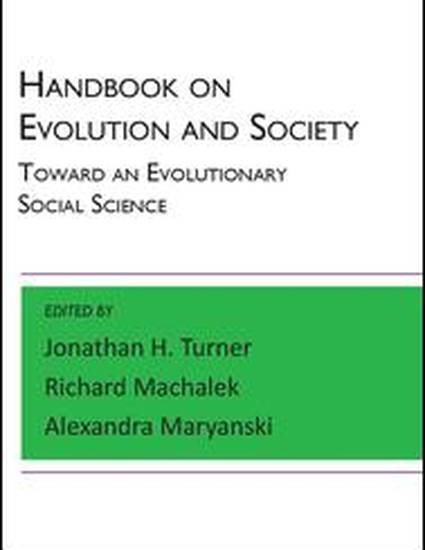
Contribution to Book
Evolved Human Sociality and Literature
Handbook on Evolution and Society: Toward an Evolutionary Social Science
(2015)
Abstract
Evolutionary social science has been a cumulative research program for less than fifty years, and evolutionary literary study for only about twenty years (Degler 1991; Pinker 2002; Carroll 2008a). Until the past few years, evolutionary accounts of human behavior have been hampered by imperfect theories of inclusive fitness, human social dynamics, and culture. The standard theory of inclusive fitness restricted concepts of cooperation to kinship and reciprocity (Wilson and Wilson 2007; Pinker 2012). Evolutionary social science, concentrating on basic animal needs and basic forms of social interaction, tacitly restricted culture to trivial differences in the manifestation of adaptive behaviors that had supposedly reached fixity at some indeterminate point in the Pleistocene (Barkow, Cosmides, and Tooby 1992; Hill 2007; Carroll 2012a). Much of the work done in evolutionary literary study has reflected these limitations in theoretical biology and in evolutionary social science, and it has also failed to register the full range of concepts available within sophisticated interpretations of literature (Carroll 2004a: 187–188; Carroll 2010).
Disciplines
Publication Date
2015
Editor
Jonathan H. Turner, Richard Machalek, and Alexandra Maryanski
Publisher
Paradigm
DOI
10.4324/9781315634203.ch30
Citation Information
Joseph Carroll. "Evolved Human Sociality and Literature" Boulder, COHandbook on Evolution and Society: Toward an Evolutionary Social Science (2015) p. 572 - 608 Available at: http://works.bepress.com/joseph-carroll/7/
